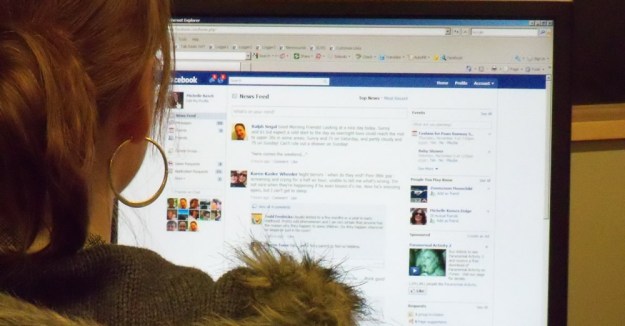
According to a study conducted by a Western University student completing her Masters’ thesis, approximately 88 percent of Facebook users that went through a relationship breakup in the last twelve months use the social network to keep an eye on their ex-boyfriend or ex-girlfriend. Veronika Lukacs, the student conducting the study, wanted to see how distress caused by the end of a relationship is related to Facebook use. Subjects filled out a survey answering questions about Facebook usage post break-up and Lukacs also conducted interviews with the respondents.

She continued “The more surveillance there was, the more distress there was, but it’s difficult to say why. Does surveillance make you more distressed, or are you distressed so you do more surveillance? My hunch is that it’s a bit of both.“
Definitely increasing the overall creepiness factor, seventy percent of the respondents admitted to using a mutual friend’s Facebook profile to spy on their ex. This method of stalking is likely used after one member of the relationship deletes the other from their friend’s list. However, both members of the relationship are still able to see likes and comments on the profiles of mutual friends. For increased privacy, Facebook also offers the ability to block another user from their entire Facebook profile. This action will hide all Facebook interactions from each person on all mutual friend profiles and neither party will show up in Facebook search. The only caveat to this method of profile blocking is that the ex will still appear in photos with mutual friends, assuming they aren’t tagged when posted to Facebook.

Over half of the respondents admitted that they were jealous of a new picture posted by an ex and approximately a third of the respondents tried to post pictures that would make their ex jealous. In addition, about one third of Facebook users used a Facebook status update to post a “song lyric or quote” that described their ex. Surprisingly, nearly 50 percent of the respondents were still friends with their ex on the social network.
Nearly 75 percent of the respondents have attempted to learn more information about a new person that the ex is dating by visiting that person’s Facebook profile. However, it’s unlikely that they would be able to see much of the profile unless they were friends with that person. In addition, about 64 percent of the respondents used Facebook to read through old correspondence such as comments and messages in order to analyze what went wrong in the relationship.
When asked about prevention of this type of stalking behavior, Lukacs stated “Deleting seemed to be really effective but it depends on the severity of your creeping behaviour. Some people are active Facebook creepers and seek out information while others are affected by what comes up on their news feed.”


